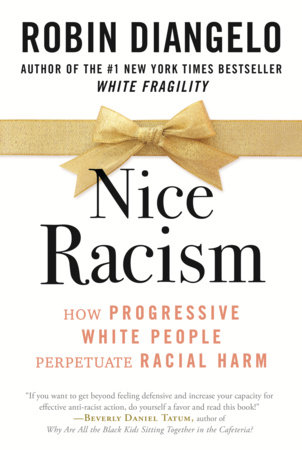TOPIC
Unconscious Bias
Unconscious (or implicit) bias refers to how we are biased or prejudicial in ways we’re not conscious of. Unconscious bias is reflected in our assumptions and stereotypes, which guide the ways we interact with, speak of, or make decisions around different groups of people or communities. For example, if we are surprised that our nurse is a man or our engineering consultant is a Black woman, that surprise is an indicator that we are holding onto an unconscious bias that a nurse or an engineering consultant should only look like a certain type of person.
Unconscious bias can be difficult to address, because none of us like the feeling of being accused of being prejudiced or discriminatory. But if we truly desire to free ourselves from preconceived judgments, we must be willing to listen and reflect when someone points out the results of inaccurate or harmful beliefs we may have absorbed from our culture or community.
FILTER
CLEAR ALL
BY TOPIC
BY TEACHER
BY TYPE
FILTER

TOPIC
- Communication Skills (27)
- Psychology (26)
- Empathy (26)
- Social Psychology (26)
- Self-Reflection Practices (26)
- Parenting (26)
- Imagination and Creativity (26)
- Young Adult Well-Being (25)
- Connection (25)
- Learning Styles (25)
- Identity (25)
- Emotional and Mental Health (25)
- Problem Solving (25)
- Self-Limiting Beliefs (25)
- ADD/ADHD (25)
- Asking for Help (24)
- Self-Pressure (24)
- Transitions (24)
- Self-Acceptance (24)
- Self-Worth (24)
- Criticism and Rejection (24)
- Neurodiversity (24)
- Epigenetics (24)
- LGBTQIA Well-Being (24)
- Child’s Trauma (24)
- Motivation (24)
- Autism (24)
- Cognitive Psychology (24)
- Self-Discovery (24)
- Relationship with Money (24)
- Curiosity (24)
- Time Management (23)
- Digital Life (23)
- Managing Energy (23)
- Imposter Syndrome (23)
- Genetics (23)
- Child’s Emotional Growth (23)
- Access to Education (23)
- Offering Support to Others (23)
- Confidence (23)
- Family Therapy (23)
- Play (23)
- Honoring Emotion (23)
- Optimism (23)
- Goal Setting (23)
- Mentoring (23)
- Failure (23)
- Academic Struggles (23)
- Gender Identity (23)
- Trauma (23)
- Talk Therapy (23)
- Suicide (23)
- Social Anxiety (23)
- Setting Limits and Boundaries (23)
- Search for Purpose (23)
- Resilience (23)
- OCD (23)
- Neuropsychology (23)
- Mental Health Challenges (23)
- Memory (23)
- Finding Meaning (23)
- Life Challenges (23)
- Inner Strengths (23)
- Grief (23)
- Gratitude (23)
- Facing Own Death (23)
- Existentialism (23)
- Depression (23)
- Cognition (23)
- Child’s Social Media Addiction (23)
- Child’s Challenging Behavior (23)
- Child’s Anxiety (23)
- Child Depression (23)
- Child Defiance (23)
- Child’s Autism (23)
- Child’s ADD/ADHD (23)
- Children’s Well-Being (23)
- Burnout (23)
- Bullying (23)
- Family Dynamics (22)
- Focus (22)
- Traumatic Grief (22)
- Stress Management (22)
- Anxiety (22)
- Masculine/Feminine Dynamics (21)
- Male Friendship (21)
- Doubt (12)
- Racial Healing (12)
- Whiteness (10)
- Cross-Cultural Dynamics (8)
- Racial Discrimination (8)
- Perception (6)
- Community Healing (6)
- Belonging (5)
- Black Well-Being (5)
- Disabled Well-Being (4)
- Immigration and Assimilation (4)
- Othering (4)
- Fellowship and Community (4)
- Entrepreneurship (4)
- Building Character (4)
- Racial Justice (4)
- Discrimination (4)
- Creative Well-Being (3)
- Racial Identity (3)
- Athlete Well-Being (3)
- Mindfulness (3)
- Social Responsibility (3)
- Adaptability (3)
- AAPI Well-Being (3)
- Work Challenges (3)
- Neuroscience (3)
- Vulnerability (2)
- Acceptance (2)
- Habit Formation (2)
- Indigenous Well-Being (2)
- Latinx Well-Being (2)
- Female Empowerment (2)
- Work Relationships (2)
- Global Challenges (2)
- Gender Justice (2)
- Weight Concerns (2)
- Transformation (2)
- Self-Care (2)
- Meditation (2)
- Gender Discrimination (2)
- Veteran Well-Being (1)
- Self-Employment (1)
- Feminism (1)
- Faith and Identity (1)
- Cross-Cultural Parenting (1)
- Psychology and Spirituality (1)
- Speaking Your Truth (1)
- Military to Civilian Re-entry (1)
- Physical Health (1)
- Economic Justice (1)
- Relationship with Time (1)
- Body Image (1)
- Body Positivity (1)
- Presence (1)
- Women’s Well-Being (1)
- Values (1)
- Self-Love (1)
- Trauma Healing (1)
- Youth Activism (1)
- War (1)
- Collective Trauma (1)
- Intergenerational Trauma (1)
- Poverty/Economic Inequality (1)
- Lovingkindness (1)
- Happiness (1)
- Self-Reliance (1)
- Leadership (1)
- Growth Mindset (1)
- Productivity (1)
- Collaboration (1)
- Friendship (1)
- Aging (1)
- Personal Development (1)
- Well-Being (1)
- Homophobia (1)
- Self-Reckoning (1)
- Philosophical Approaches (1)
- Oneness (1)
- Mindfulness Practices (1)
- Midlife Crisis (1)
- Lovingkindness Meditation (1)
- Judaism (1)
- Journaling (1)
- Fear (1)
- Dreamwork (1)
- Courage (1)
- Christianity (1)
- Cancer (1)
- Buddhism (1)
Want More Like This?
To continue customizing your FindCenter experience, create an account. It’s free!
Create an account to discover wisdom, save your favorite content, and connect with teachers and seekers.
IT’S FREE
If you already have an account, please log in.





 What you see and what you hear depends a great deal on where you are standing. It also depends on what sort of person you are.
What you see and what you hear depends a great deal on where you are standing. It also depends on what sort of person you are.




